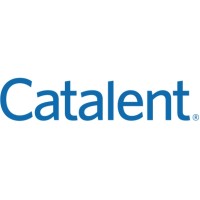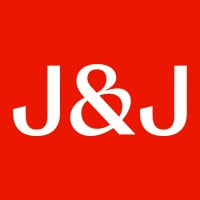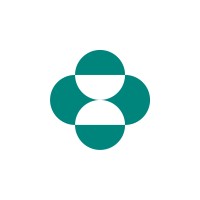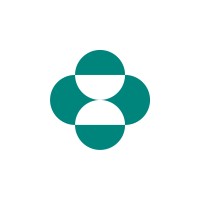Company Cyber Security Posture
NANA
NA Company Details
NA
NA
NA
NA
NA
NA
Scan still pending
NA
NA
Between 200 and 800
This score is AI-generated and less favored by cyber insurers, who prefer the TPRM score.
 NA Global Score
NA Global Score.png)

Company Scoring based on AI Models
| Model Name | Date | Description | Current Score Difference | Score |
|---|---|---|---|---|
| AVERAGE-Industry | 03-12-2025 | This score represents the average cybersecurity rating of companies already scanned within the same industry. It provides a benchmark to compare an individual company's security posture against its industry peers. | N/A | Between 200 and 800 |
Company Cyber Security News & History
| Entity | Type | Severity | Impact | Seen | Url ID | Details | View |
|---|
Company Subsidiaries

NA
Access Data Using Our API

Get company history
.png)
NA Cyber Security News
Veteran Security Operations Strategist, Amrit Sethi Joins Adani as Group Head for Cyber Security
Amrit Sethi, Group Head-Cybersecurity, Adani Group Veteran cybersecurity advisor and Associate Partner at KPMG, Amrit Sethi has been appointed ...
India's Role In Cybersecurity Collaboration With G20
In this issue of The Security Pill, we have Sujoy Brahmachari. The current CTISO of USE Group. He was formerly the CISO of Hero Motor Corp and Ranbaxy ...
Indian drug giant Ranbaxy trims losses but future is bleaker
The stock has lost 22.7 percent of its value in the past 12 months. Ranbaxy is more than 60 percent owned by Daiichi Sankyo, which bought the ...
Hero MotoCorp's CIO & CHRO Vijay Sethi quits
Vijay Sethi quits Hero MotoCorp; Automaker appoints interim IT HeadHero MotoCorp's CIO Vijay Sethi has quit the company after a thirteen-year long stint.

NA Similar Companies

Catalent Pharma Solutions
Catalent, Inc. is a leading global contract development and manufacturing organization (CDMO) whose mission is to develop, manufacture, and supply products that help people live better and healthier lives. Catalent is dedicated to delivering unparalleled service to pharma, biotech, and consumer heal

Johnson & Johnson Innovative Medicine
At Johnson & Johnson Innovative Medicine, we innovate with purpose, to lead where medicine is going. The experiences of patients around the world inform and inspire our science-based innovations, which continue to change and save lives. Applying rigorous science with compassion, we confidently addre

AUROBINDO PHARMA LTD
Aurobindo Pharma Limited (NSE: AUROPHARMA, BSE: 524804, Reuters: ARBN.NS, Bloomberg: ARBP IN) is an integrated global pharmaceutical company headquartered in Hyderabad, India. The Company develops, manufactures, and commercializes a wide range of generic pharmaceuticals, branded specialty pharmaceut

Merck
At Merck, known as MSD outside of the United States and Canada, we are unified around our purpose: We use the power of leading-edge science to save and improve lives around the world. For more than 130 years, we have brought hope to humanity through the development of important medicines and vaccine

MSD
At MSD, known as Merck & Co., Inc., Rahway, NJ, USA in the United States and Canada, we are unified around our purpose: We use the power of leading-edge science to save and improve lives around the world. For more than 130 years, we have brought hope to humanity through the development of important

ITW Contamination Control
ITW Texwipe is committed to producing the highest quality cleanroom consumable products in the world. In order to ensure that we meet that commitment, we continue to invest steadily in technology, innovation and quality to create and maintain state-of-the-art systems. ITW Texwipe achieves superio

Frequently Asked Questions
Explore insights on cybersecurity incidents, risk posture, and Rankiteo's assessments.
NA CyberSecurity History Information
How many cyber incidents has NA faced?
Total Incidents: According to Rankiteo, NA has faced 0 incidents in the past.
What types of cybersecurity incidents have occurred at NA?
Incident Types: The types of cybersecurity incidents that have occurred include .
Additional Questions
What Do We Measure?
















Every week, Rankiteo analyzes billions of signals to give organizations a sharper, faster view of emerging risks. With deeper, more actionable intelligence at their fingertips, security teams can outpace threat actors, respond instantly to Zero-Day attacks, and dramatically shrink their risk exposure window.
These are some of the factors we use to calculate the overall score:
Identify exposed access points, detect misconfigured SSL certificates, and uncover vulnerabilities across the network infrastructure.
Gain visibility into the software components used within an organization to detect vulnerabilities, manage risk, and ensure supply chain security.
Monitor and manage all IT assets and their configurations to ensure accurate, real-time visibility across the company's technology environment.
Leverage real-time insights on active threats, malware campaigns, and emerging vulnerabilities to proactively defend against evolving cyberattacks.




